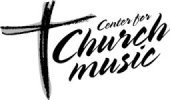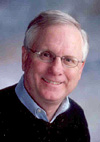Center For Church Music, Songs & Hymns

Recent articles
- Kids Choir Camp 2012: A Soldier of the Cross!
- Kids Choir Camp 2011
- Billy's Questions: Session 1
- How I Can Help
- The Song of the Cross
Great Hymns of the Faith CDs
Categories
- Church Musicians
- The Weight of Glory
- Be Prepared
- Singing Hymns
- Singing Lessons
- John Wesley on Singing
- Singing: A Call to Excellence
- Lay People
- Billy's Questions
- C.S. Lewis on Worship
- Kids Choir Camp
- A Song of Christmas
- Singing Hymns
- Knowing Christ
- Christmas Eve Truce
- Pastors
- Music
- Church Musician
- Worship
Our Author

Music & Worship
1,000 Years of Silence
One of the great mysteries of the church is the absence of congregational song from about 500 AD to 1500 AD. As we have noted in the past, the early church was saturated with song. In fact, one scholar, Ralph P. Martin, goes so far as to state that the "Christian church was born in song."
So then, how could a church, vibrant and filled with powerful song, submit to such a long period when "for all practical purposes, the congregation's voice was silent?" (Donald P. Hustad) Like any mystery, there are no clear answers. But perhaps one clue can be found in a ruling made by the church council held in the city of Laodecia around 381. (Laodecia was one of the "Seven Churches" mentioned in Revelation and was located in Asia Minor, now known as Turkey.)
The Council of Laodecia stated that all music sung in the church must be performed by priests--not the laity. Also, the Psalms and hymns sung in worship could only come from Scripture: no "privately composed" songs were allowed. While this ruling was localized to a small geographical area of the church, it demonstrates that music was increasingly being used by those whose theological ideas were not orthodox, but heretical.
Remember that by this time instruments were almost never used in worship--their pagan influence had become too strong. And now, even the singing of the worshipers was hindered by those who sought to advance their fallacious views of Christ, and other bogus theological issues.
In history, rarely does anything happen "all at once." But eventually, all the singing in the church was performed by professional clergy. This is not to say that hymns were not written during this time. In fact, the words to many of the great hymns we sing today were composed during this 1,000 year period of congregational silence. But, if the hymns were sung inside the church, they were sung by clergy--not the congregation.
The lesson for today is obvious. If God allowed song to be taken from the congregation once, He could do it again. In the book of Judges, the phrase "they did what was right in their own eyes" describes the self-serving practices of the Hebrews. (Judges 17:6) Their actions led to nothing but problems for Israel.
Likewise, in today's church culture, the quest for ever larger congregations has led to a new variation on this old Hebrew mantra. In the name of church growth, great hymns, both old and new, are being replaced by an assortment of "praise and worship" styles; a musical mode whose exemplar is often mediocrity. The deep-seated care and concern of the early church regarding the selection and performance of hymns, both text and music, has long been forgotten.
But, there is hope. Let me challenge you to sing a hymn today. Let your spiritual life be strengthened by words and music of the great hymns of the faith.
